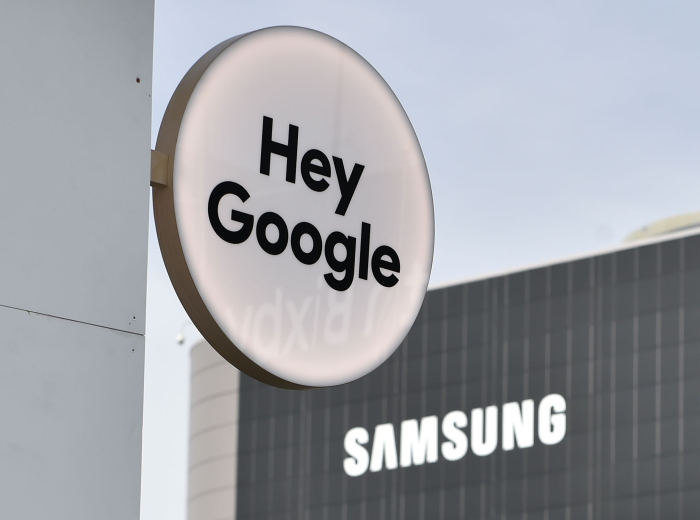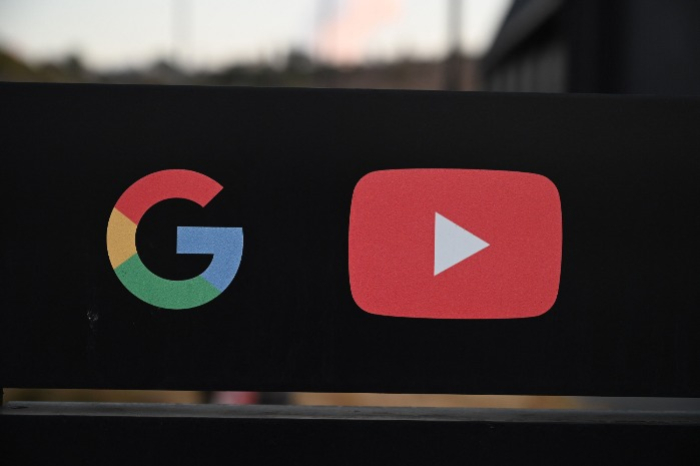S.Korea fines Google $180 mn for operating system market abuse
FTC accuses Google of 'unprecedented anti-innovation activity;' Google to appeal
By Sep 14, 2021 (Gmt+09:00)

South Korea's Fair Trade Commission (FTC) on Tuesday imposed a fine of 207.4 billion won ($180 million) on Google, alongside a correction order, after the Big Tech firm was found to have forced Samsung Electronics Co. and other smartphone manufacturers to use its operating system (OS).
Google Android OS, developed in 2008, is a Linux-based open-source operating system for mobile devices. The US tech giant was charged with banning Korean smartphone makers since 2011 from using the changed versions of the Android OS, or the competing system iOS developed by Apple Inc.
"We will sternly enforce the law against anti-competitive activities conducted by dominant platform players aimed at maintaining and strengthening their monopolistic positions, regardless of their nationality," FTC Chairman Jo Sung-wook said in a statement.
The antitrust body accused Google of conducting "unprecedented anti-innovation activities," which the company flatly denied in immediate response to the decision.
The fine of 207.4 billion won marked the third-largest amount levied by the antitrust body on a foreign company operating in South Korea.
In particular, the FTC found that Google's anti-fragmentation agreements (AFAs) with the smartphone manufacturers constituted anti-competitive practices. Under the agreements, it alleged that Google had forced smartphone manufacturers not to develop their own operating systems, nor revise Google's OS, as a condition of installing Google's popular apps such as Youtube and Google Map on their devices, including smart TVs and smartwatches.

Accordingly, the anti-monopoly body ordered Google to amend the existing AFAs with the smartphone companies to lift the ban.
In a statement issued on Tuesday, Google said the commission overlooked the competition between its Android OS and Apple's iOS and that it would appeal the decision in court. Google also argued the decision failed to take into consideration the benefits enjoyed by app developers, device manufacturers and consumers from the Android OS.┬Ā
CURBING INFLUENCE OF PLATFORM GIANTS
FTC's antimonopoly division head Song Sang-min said in a news briefing that other OS developers, including Amazon and China's Alibaba, had withdrawn from the market because they failed to find buyers.┬Ā
In Europe, Google in 2018 was charged a record-setting Ōé¼4.3 billion fine for antitrust violations around its Android smartphone OS. It was accused of forcing mobile network operators to install Chrome, Google search and other Google apps as the default.
While the EU Commission's decision against Google was limited to smartphones, the Korean FTC's move extended to other smart gadgets such as smartwatches and smart TVs, it added.┬Ā
"Given the mobile OS market maturity and its high entry barriers, the impact of today's decision could be limited," Joh said in the news briefing.
"But if the AFA-related restrictions are lifted, we expect Samsung Electronics, LG Electronics and other domestic manufacturers to make various innovative efforts for other smart gadgets."
But some IT industry watchers played down the possible impact of the FTC's decision against Google, saying that Samsung's smartwatches equipped with their own OS Tizen failed to gain popularity.
OTHER ALLEGATIONS FACED BY GOOGLE IN KOREA
Separate from the smartphone OS, South Korea has been investigating Google for three other allegations: hampering app developers from launching games on Google's rival app stores; forcing app developers to use Google's in-app payment systems; and unfair business practices in the tailored advertising market.┬Ā┬Ā
Last month, the South Korean parliament┬Āpassed the world's first bill to ban
Google, Apple Inc. and other app store operators from forcing certain payment schemes like Google's in-app billing system on app developers.
The legislative move came after South KoreaŌĆÖs privacy regulator fined Facebook and Netflix for their infringement of personal information laws in the country. At the time, Google was not found to have violated any relevant laws, but was told to reform its data collection and processing practices.
The FTC chairman last Friday said that concerns grew about unfair business practices by platform companies such as Naver Corp. and Kakao Corp. Previously, she had hinted that the antimonopoly body's second-half policy focus will be on curbing the influence of large platform companies.
But an IT industry source questioned why the FTC, which has been investigating Google since 2016, chose to announce the results of the probe just when it has been ratcheting up efforts to curb the influence of platform giants.
"It seemed like they wanted to deflect criticism of tightening their grip too much on domestic IT giants such as Kakao," he told The Korea Economic Daily.
Write to Eu-jin Jeong, Min-jun Suh and Min-ki Koo at justjin@hankyung.com
Yeonhee Kim edited this article.
-

-

-
 EarningsFacebook's operating profit surges sixfold in S.Korea; tops $10 mn
EarningsFacebook's operating profit surges sixfold in S.Korea; tops $10 mnApr 13, 2021 (Gmt+09:00)
2 Min read




